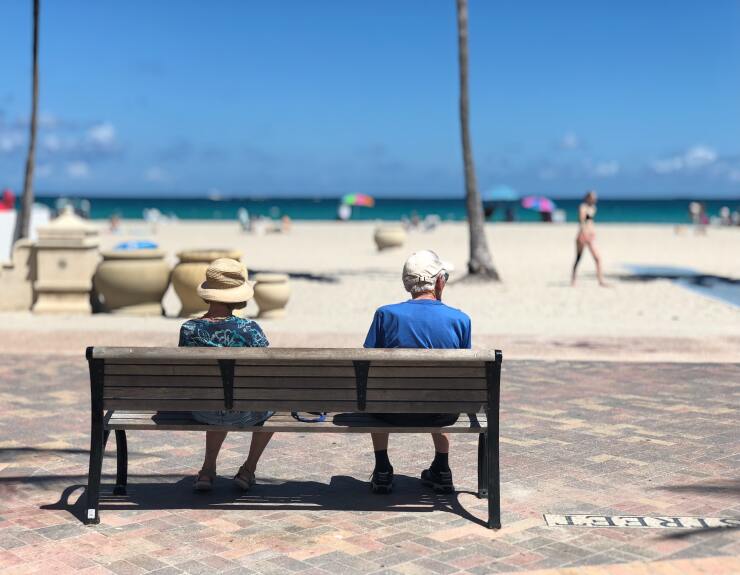Seventeen percent of retirees move once they hit retirement age, and an additional 16% stay in their home into their 80s before ultimately moving, often due to health reasons, according to a survey by the Center for Retirement Research. For those considering a move, it’s all about finding the right balance between financial and personal preferences, says Kevin Chancellor, founder and CEO of Black Lab Financial Services.
“The personal side of things is all about quality of life. A retiree may want to live somewhere that has ease of access to the services they're accustomed to and the places they like to go. Climate can be a factor, too,” he says. “It's finding a balance between what's going to make them happy and then what's going to be the most cost-effective.”
Read more:
Finding that perfect fit often comes down to economics, Chancellor says, as many retirees want to downsize their home or find a place with lower taxes so their dollars can stretch. Florida, for example, touts no state income tax, as well as a low sales tax, making the cost of living less than in other states. However, as more people move in and home prices creep up, a retiree may find that their savings may not go as far.
“We have this problem in Florida right now in certain communities that had a very affordable cost of living, and people who come from a very high cost of living are coming down and paying cash for things,” Chancellor says. “Demand and low inventory are driving the prices up in these areas, and these places are at risk of losing that affordability.”
While retirees are lured to Florida by other factors, like the weather and access to beaches, Chancellor says other southern states like Alabama, Georgia and Mississippi are becoming
“If you're selling a place in California where the median home price is over $800,000, and you're moving to a place like Florida, it's a win-win for you,” Chancellor says. “But it's not a win-win for someone that may be downsizing from a $300,000 home. It’s not as much of an economic benefit.”
Read more:
For some retirees, not moving at all may be the best case scenario. If a retiree has already paid off their home, or homes in other locations are comparable to the value of the home they live in now, it may be more prudent to stay put, Chancellor says. “If they're completely debt free where they're living and the quality of life and economic factors are balanced, it may not make any sense for a person to move.”
But finding a low-cost living option is not the only consideration retirees should take into account, Chancellor says. Visualizing their lifestyle — whether it’s wanting to be close to family, friends and community, or more isolated in nature — can impact where a retiree puts down new roots.
“Make a pros and cons list. Take a look at what you enjoy about where you live and can you mimic that at a better cost somewhere else,” he says. “Come up with a list of things you would say, I can't live without. And then look at the places that fit those ideals and start shopping.”






